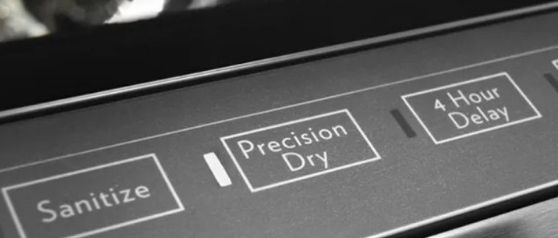How to Use The Dishwasher

How do dishwashers work?
Dishwashers clean your dishes by spraying them with hot water and dish detergent through several water fills and drains, followed by drying. Your hot water comes from spray arms or towers. Although they may differ in size, shape, and placement, they all work similarly to spread the soap, remove soil and food messes, and then rinse your dishes clean. Then, your dishes are heated dry by a hot-dry cycle so they dry more quickly and with less water spotting. Your dishwasher likely has several settings, such as quick wash, so you can get a custom clean.
How to put dishes in the dishwasher
Every dishwasher is different, so always refer to your owner’s manual, but the general principles of how to properly load a dishwasher are typically the same. Always put larger, bulky items like pots and pans in the bottom rack of the dishwasher, preferably on the sides or in the back, paying special attention to the path of the sprayer and the location of your dishwasher’s detergent chamber. Glasses and heat-sensitive plastics should go in the top rack. Avoid water spots by placing glasses between tines, not over them. And for super clean utensils, try alternating the way you place silverware into the utensil basket with some head-first and others feet-first to avoid accidental nesting during the wash cycle.
Can you put dish soap in a dishwasher?
You should not substitute hand-dishwashing liquid for automatic dishwasher detergent. Dishwasher detergent is specially formulated to produce low suds. Regular dish liquid can create too many suds for automatic dishwashers, which can damage your machine and the surfaces around it. Dishwasher detergent also has ingredients that loosen stuck-on food particles and greasy residues without leaving water spots behind or a need for a pre-rinse. Plus, they have ingredients that help protect your dishes from the long-term effects of heat and water over many cycles. Learn how easy it is to use Cascade’s powerful products.
What not to put in dishwasher
A good rule of thumb is to leave out wood, iron, silver, aluminum, or any china or crystal not labeled dishwasher-safe. For items that you should be hand washing, Dawn Pure Essentials is a great choice, as these items can be permanently discolored or damaged in the dishwasher. When in doubt, follow the manufacturer's recommendation on what is dishwasher-safe.
How do I ensure my dishes dry properly in the dishwasher?
Always load your dishes properly so that they do not collect excess water. The use of a rinse aid in accordance with your dishwasher manufacturer’s specifications will help your dishes to dry faster after the wash cycle. Cascade Power Dry Rinse Aid is specifically formulated to give you outstanding spot protection—plus amazing shine and drying. Our rinse aid has specialized wetting agents that allow water to sheet off the dishes and helps rinse away food particles and residues that can cause spots on dishes.
How to take care of your dishwasher
Generally, your dishwasher will always be most effective when you regularly maintain your dishwasher. This includes regularly changing your dishwasher filter and cleaning your dishwasher. Keep up your automatic dishwasher education with tips from Cascade and learning about Cascade’s Dishwasher Cleaner.
Recommended Articles
Tips for Loading a Dishwasher
Have you ever wondered how to properly load your dishwasher? Look no further for tips, tricks, articles and advice from Cascade!
How to Know If A Dish is Dishwasher Safe
Unsure of what you can put into your dishwasher? Not sure if it's dishwasher safe? Follow these guidelines before loading your dishwasher with your kitchen items.
Do I Need To Prewash My Dishes?
Prewashing your dishes? See how using the right detergent can free up time from your dish routine, no pre-rinse necessary.